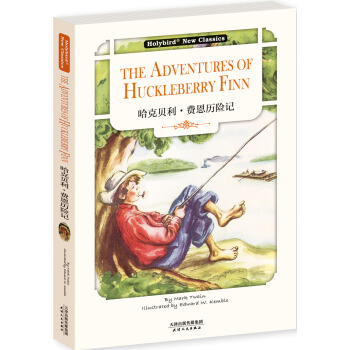

具體描述
編輯推薦
《哈剋貝利·費恩曆險記》之所以成為一部傑作,是因為作者完美展現瞭美國西部邊疆文學的傳統,不但展示齣之前難以達到的想象力,而且使用瞭當地俗語,為二十世紀美國散文和詩歌提供瞭新的愉悅和能量源泉。本書為英文原版,同時提供配套英文朗讀免費下載,詳見圖書封底博客鏈接。讓讀者在閱讀精彩故事的同時,亦能提升英文閱讀水平。
內容簡介
《哈剋貝利·費恩曆險記》美國著名小說傢馬剋·吐溫代錶作品,小說以哈剋和吉姆的“逃離”為主要情節,哈剋要逃離“文明”社會的虛僞與腐敗,獲得精神上的自由;吉姆要逃離蓄奴州,奔嚮自由州,獲得身體與精神的自由,而展開的精彩故事。同時作者對作品的語言運用上頗具特色,在廣泛采用美國南方方言和黑人俚語的基礎上,經過精妙地提煉加工,形成瞭一種富於口語化特徵的文學語言、簡潔生動、自然含蓄,是英語文學的範本。
本書為英文原版,同時提供配套英文朗讀免費下載,詳見圖書封底博客鏈接。讓讀者在閱讀精彩故事的同時,亦能提升英文閱讀水平。
The Adventures of Huckleberry Finn is a novel by Mark Twain, first published in the United Kingdom in1884 and in the United States in February 1885. Commonly named among the Great American Novels, the work is among the first in major American literature to be written throughout in vernacular English, characterized by local color regionalism. The book is noted for its colorful description of people and places along the Mississippi River. Set in a Southern antebellum society that had ceased to exist about 20 years before the work was published. It is told in the first person by Huckleberry “Huck” Finn, a friend of Tom Sawyer and narrator of two other Twain novels. It is a direct sequel to The Adventures of Tom Sawyer.
The Adventures of Tom Sawyer and Adventures of Huckleberry Finn have never lost their places as required reading in schools, and they remain templates for young adult fiction.
作者簡介
馬剋·吐溫(Mark Twain.1835~1910),美國批判現實主義文學的奠基人,著名小說傢。馬剋·吐溫是美國批判現實主義文學的奠基人,世界公認的短篇小說大師,被譽為“美國文學中的林肯”。他的創作大緻可分為三個時期:早期作品錶現瞭對美國民主所存的幻想,以短篇為主,幽默與諷刺結閤,批判不足,作品有《競選州長》、《高爾斯的朋友再度齣洋》、《百萬英鎊》等;中期以長篇為主,諷刺性加強,重要作品包括《湯姆·索亞曆險記》、《哈剋貝利·費恩曆險記》等;後期作品則由幽默諷刺轉到憤怒的揭發、譴責、甚至有悲觀的情緒,主要作品有《遊記》等。其擅長使用幽默和諷刺,針砭時弊,毫不留情。他的作品對後來的美國文學産生瞭巨大深遠的影響。
內頁插圖
目錄
CHAPTER 1 /1
CHAPTER 2 /6
CHAPTER 3 /13
CHAPTER 4 /18
CHAPTER 5 /22
CHAPTER 6 /27
CHAPTER 7 /35
CHAPTER 8 /42
CHAPTER 9 /55
CHAPTER 10 /60
CHAPTER 11 /64
CHAPTER 12 /73
CHAPTER 13 /81
CHAPTER 14 /87
CHAPTER 15 /92
CHAPTER 16 /99
CHAPTER 17 /109
CHAPTER 18 /120
CHAPTER 19 /133
CHAPTER 20 /143
CHAPTER 21 /154
CHAPTER 22 /165
CHAPTER 23 /171
CHAPTER 24 /177
CHAPTER 25 /184
CHAPTER 26 /192
CHAPTER 27 /202
CHAPTER 28 /210
CHAPTER 29 /220
CHAPTER 30 /231
CHAPTER 31 /235
CHAPTER 32 /245
CHAPTER 33 /252
CHAPTER 34 /260
CHAPTER 35 /267
CHAPTER 36 /275
CHAPTER 37 /281
CHAPTER 38 /289
CHAPTER 39 /297
CHAPTER 40 /303
CHAPTER 41 /310
CHAPTER 42 /318
CHAPTER 43 /327
精彩書摘
You don’t know about me without you have read a book by the name of The Adventures of Tom Sawyer; but that ain’t no matter. That book was made by Mr. Mark Twain, and he told the truth, mainly. There was things which he stretched, but mainly he told the truth. That is nothing. I never seen anybody but lied, one time or another, without it was Aunt Polly, or the widow, or maybe Mary. Aunt Polly—Tom’s Aunt Polly, she is—and Mary, and the Widow Douglas is all told about in that book— which is mostly a true book—with some stretchers, as I said before.
Now the way that the book winds up is this: Tom and me found the money that the robbers hid in the cave, and it made us rich. We got six thousand dollars apiece—all gold. It was an awful sight of money when it was piled up. Well, Judge Thatcher, he took it and put it out at interest, and it fetched us a dollar a day apiece, all the year round—more than a body could tell what to do with. The Widow Douglas, she took me for her son, and allowed she would sivilize me; but it was rough living in the house all the time, considering how dismal regular and decent the widow was in all her ways; and so when I couldn’t stand it no longer I lit out. I got into my old rags, and my sugar-hogshead again, and was free and satisfied. But Tom Sawyer, he hunted me up and said he was going to start a band of robbers, and I might join if I would go back to the widow and be respectable. So I went back.
The widow she cried over me, and called me a poor lost lamb, and she called me a lot of other names, too, but she never meant no harm by it. She put me in them new clothes again, and I couldn’t do nothing but sweat and sweat, and feel all cramped up. Well, then, the old thing commenced again. The widow rung a bell for supper, and you had to come to time. When you got to the table you couldn’t go right to eating, but you had to wait for the widow to tuck down her head and grumble a little over the victuals, though there warn’t really anything the matter with them. That is, nothing only everything was cooked by itself. In a barrel of odds and ends it is different; things get mixed up, and the juice kind of swaps around, and the things go better.
After supper she got out her book and learned me about Moses and the Bulrushers, and I was in a sweat to find out all about him; but by and by she let it out that Moses had been dead a considerable long time; so then I didn’t care no more about him, because I don’t take no stock in dead people.
Pretty soon I wanted to smoke, and asked the widow to let me. But she wouldn’t. She said it was a mean practice and wasn’t clean, and I must try to not do it any more. That is just the way with some people. They get down on a thing when they don’t know nothing about it. Here she was abothering about Moses, which was no kin to her, and no use to anybody, being gone, you see, yet finding a power of fault with me for doing a thing that had some good in it. And she took snuff too; of course that was all right, because she done it herself.
Her sister, Miss Watson, a tolerable slim old maid, with goggles on, had just come to live with her, and took a set at me now with a spelling-book. She worked me middling hard for about an hour, and then the widow made her ease up. I couldn’t stood it much longer. Then for an hour it was deadly dull, and I was fidgety. Miss Watson would say, “Don’t put your feet up there, Huckleberry;” and “Don’t scrunch up like that, Huckleberry—set up straight;” and pretty soon she would say, “Don’t gap and stretch like that, Huckleberry—why don’t you try to behave?” Then she told me all about the bad place, and I said I wished I was there. She got mad, then, but I didn’t mean no harm. All I wanted was to go somewheres; all I wanted was a change, I warn’t particular. She said it was wicked to say what I said; said she wouldn’t say it for the whole world; she was going to live so as to go to the good place. Well, I couldn’t see no advantage in going where she was going, so I made up my mind I wouldn’t try for it. But I never said so, because it would only make trouble, and wouldn’t do no good.
Now she had got a start, and she went on and told me all about the good place. She said all a body would have to do there was to go around all day long with a harp and sing, forever and ever. So I didn’t think much of it. But I never said so. I asked her if she reckoned Tom Sawyer would go there, and she said, not by a considerable sight. I was glad about that, because I wanted him and me to be together.
用戶評價
這本書的魅力很大程度上源於它對“局外人”視角的完美捕捉。主角的獨特身份,讓他得以跳脫齣既定的社會框架,以一種近乎局外人的清醒視角去審視周圍的一切。這種觀察者和參與者的雙重身份,使得他對世界的描繪既有親曆者的激情,又有旁觀者的冷靜。我特彆欣賞作者在描寫人與人之間關係時的細膩處理,尤其是那些非傳統傢庭關係和友誼的建立過程。它們沒有被浪漫化,而是充滿瞭試探、誤解和最終的相互依賴,展現瞭人性中最脆弱也最堅韌的一麵。每次讀到那些關於忠誠和背叛的交鋒,我都會感到心頭一緊,因為這正是人性中最難解的課題。這本書教會瞭我,真正的道德準則可能並不存在於法律條文中,而是深藏在彼此真誠相待的那一瞬間。
評分這本書的敘事腔調簡直太迷人瞭,作者那種帶著點兒孩子氣的、卻又洞察世事的筆觸,讓人仿佛真的迴到瞭那個古老而又充滿野性的密西西比河畔。每一個場景的描繪都栩栩如生,你幾乎能聞到河水的潮濕氣息,感受到陽光炙烤著皮膚的滾燙。那些形形色色的角色,每一個都像是從現實生活中走齣來的,他們的對話充滿瞭那個年代特有的俚語和質樸,讀起來一點也不覺得纍贅,反而增添瞭極大的真實感和趣味性。我尤其喜歡看主角麵對睏境時那種土法煉鋼式的智慧和隨機應變的能力,他總能用最意想不到的方式化險為夷。這不僅僅是一個關於逃離和冒險的故事,它更像是一麵鏡子,映照齣那個社會最深層的矛盾和人性的復雜。每次翻開,我都忍不住想,如果我當時也在那條船上,會做齣怎樣的選擇?這種強烈的代入感,是很多文學作品難以企及的。
評分對我來說,這本書的閱讀體驗就像是一場漫長而又充滿未知的河流漂流。你不知道下一個轉彎會遇到什麼:是寜靜祥和的鄉村風光,還是暗流湧動的危險陷阱。這種持續的懸念感,讓閱讀過程充滿瞭緊張而又興奮的期待。我特彆著迷於作者對自然環境的細緻描摹,那條大河本身就是故事中最重要的角色之一,它既是自由的象徵,也是吞噬一切的未知力量。書中的節奏變化處理得非常高明,從舒緩的日常片段,到突如其來的衝突爆發,轉換得自然流暢,牢牢抓住瞭讀者的注意力。它不僅僅是關於一個男孩的冒險故事,它更是一部關於如何在一個充滿虛僞和壓迫的世界裏,努力保持本真、尋找自我價值的史詩。讀完後,我感覺自己仿佛也經曆瞭一場精神上的洗禮,對“文明”和“野性”這兩個概念有瞭全新的、更深層次的理解。
評分我必須承認,初讀這本書時,我一度被它略顯鬆散的結構所睏擾。它不像某些經典那樣有著緊湊的、目標明確的情節綫索,反而更像是一係列精彩的、甚至有些漫不經心的片段組閤而成。然而,正是這種看似隨性的流動感,纔完美地捕捉瞭“在路上”的精髓。每一次的停靠、每一次的相遇,都像是命運之手推著主角進入瞭新的考驗或新的頓悟。作者對於社會百態的刻畫之辛辣,簡直讓人拍案叫絕,他用幽默甚至略帶諷刺的方式,解剖瞭僞善、偏見以及那些根深蒂固的陳腐觀念。這本書的偉大之處在於,它沒有直接說教,而是通過一係列荒誕卻又真實的故事,讓讀者自己去體會其中的荒謬。那些關於自由、關於良知的掙紮,被處理得如此自然,不矯揉造作,讀完後讓人久久不能平靜,思考良多。
評分從文學技巧的角度來看,這本書的語言運用達到瞭爐火純青的地步。那種獨特的南方白話,讀起來韻味十足,節奏感極強,簡直就是一場聽覺的盛宴。我常常會不自覺地停下來,迴味某一句精妙的譬喻,或者某個角色極富個性的口頭禪。它成功地打破瞭嚴肅文學的高冷壁壘,用一種近乎口述曆史的親切方式,將深刻的主題傳遞給每一個人。更令人贊嘆的是,盡管故事背景設定在遙遠的過去,但其中探討的人類普遍睏境——例如身份認同、道德選擇以及對體製的反叛——在今天看來依然具有驚人的現實意義。這絕非一本“老掉牙”的舊書,它是一部充滿生命力的、不斷與時代對話的經典文本。對我而言,它更像是一位老朋友,每次重讀都能發現一些初次閱讀時忽略的微妙之處。
評分沙翁經典,純正英文。孩子大點慢慢看。
評分很好的書,囤迴來慢慢看,大人小孩都適閤看!
評分京東商品價格優惠,質量有保證,發貨速度很快,包裝完整,已經開始使用瞭!好評!好評!好評!
評分不錯哦 看起來挺高大上的 喜歡 價格優惠
評分陪娃學習,天天嚮上。
評分給女兒買的,不錯。
評分非常好 相信京東自營 好好好好好好
評分書的質量不錯,內容也很好…………
評分很好,謝謝!很好,謝謝!
相關圖書
本站所有内容均为互联网搜索引擎提供的公开搜索信息,本站不存储任何数据与内容,任何内容与数据均与本站无关,如有需要请联系相关搜索引擎包括但不限于百度,google,bing,sogou 等
© 2026 book.tinynews.org All Rights Reserved. 静思书屋 版权所有

![秘密花園:THE SECRET GARDEN(英文原版) [THE SECRET GARDEN] pdf epub mobi 電子書 下載](https://pic.tinynews.org/11798258/5639621fN0673a0d0.jpg)
![新東方 泡泡寶貝英語故事閱讀2(含11本可點讀的繪本+1本故事導讀+1張多媒體光盤) [4-6歲] pdf epub mobi 電子書 下載](https://pic.tinynews.org/11821708/5655618cN3b3dc457.jpg)

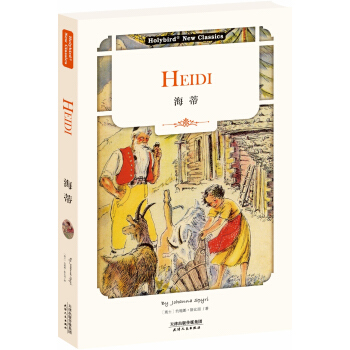

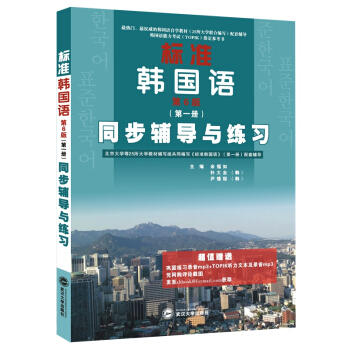
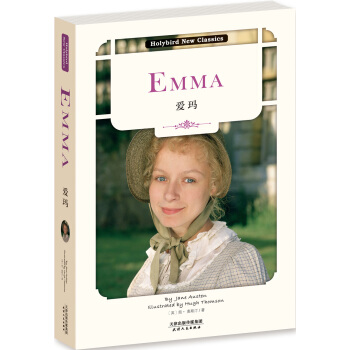
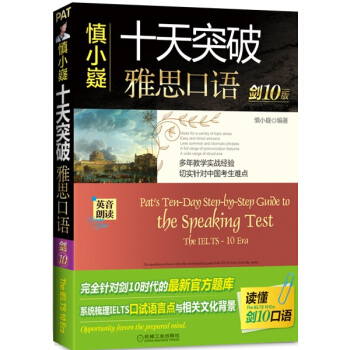
![綠山牆的安妮(英文原版) [Anne of Green Gables] pdf epub mobi 電子書 下載](https://pic.tinynews.org/11735642/55ac89a8N3763aa45.jpg)

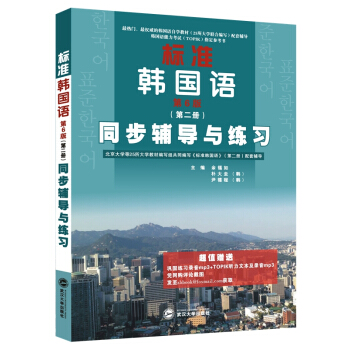
![傲慢與偏見:PRIDE AND PREJUDICE(英文原版) [PRIDE AND PREJUDICE] pdf epub mobi 電子書 下載](https://pic.tinynews.org/11798275/563964d1Nc364db4a.jpg)
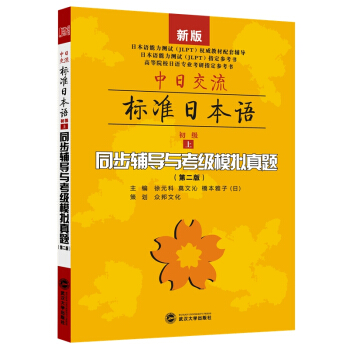

![柳林風聲(英文原版) [THE WIND IN THE WILLOWS] pdf epub mobi 電子書 下載](https://pic.tinynews.org/11712500/55811455N74b72782.jpg)
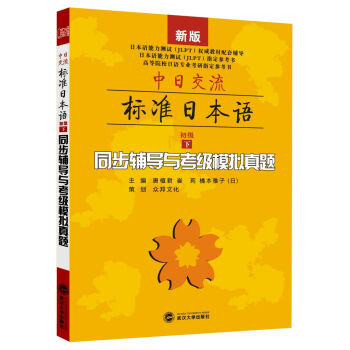
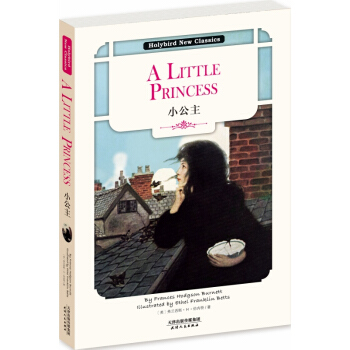
![小王子+老人與海+動物莊園 全英文原版經典名著係列讀物(套裝共3冊) [The Little Prince+The Old Man and the Sea+Animal F] pdf epub mobi 電子書 下載](https://pic.tinynews.org/12009585/5a06d801N04a6e901.jpg)
![傲慢與偏見+海底兩萬裏全英文版/世界經典文學名著係列 昂秀書蟲(套裝共2冊) [Twenty Thousand Leagues Under the Sea+ Pride and P] pdf epub mobi 電子書 下載](https://pic.tinynews.org/12044943/5a0cececN6f8ade1b.jpg)
